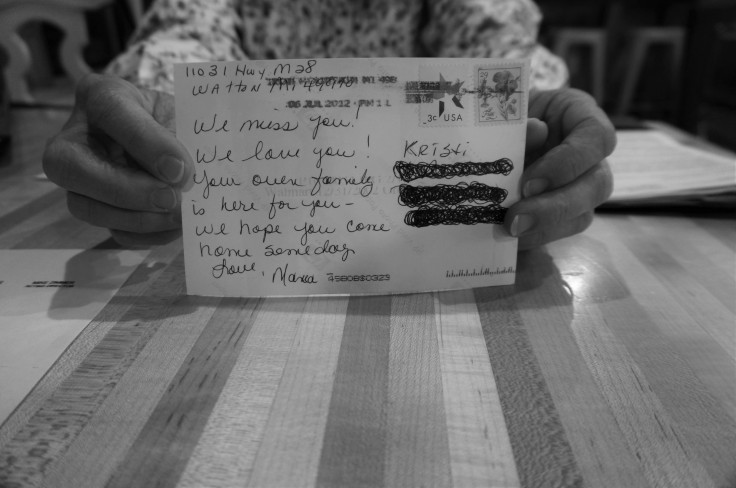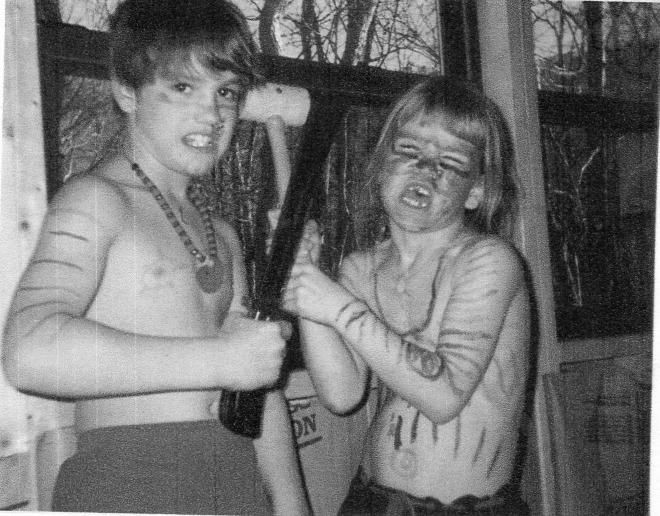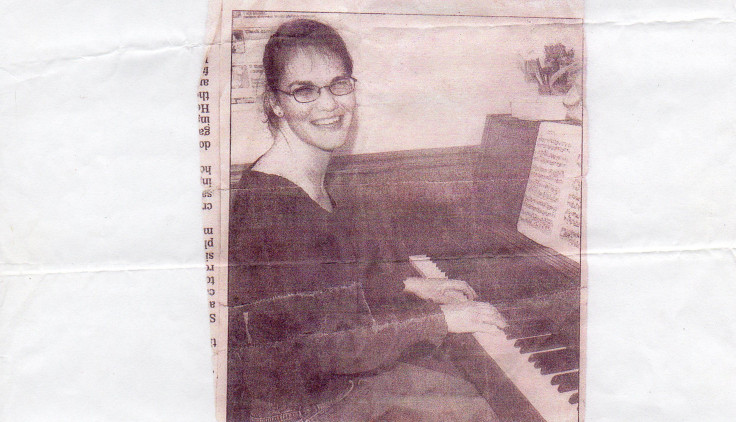Recovered Memory Therapy, Evangelical Abuse, And The Mystery of What Happened To One Michigan Family

In the early days of summer 2009, a 17-year-old-girl from Michigan named Kristi Roberts sought out Kathryn Salmi, a Christian counselor, to help her deal with some emotional turmoil.
Salmi discovered that the girl's history of trauma extended far into her past; she had in fact endured years of sexual and physical abuse within the home, primarily from her father, Lale Roberts. Her mother, Joan Roberts, had likewise turned a blind eye to Lale's actions.
Or maybe not. Married for nearly 30 years, Joan and Lale deny these claims of abuse. Instead, they say Kristi has been the unwilling victim of a once-popular therapeutic practice now relegated to the fringes of psychotherapy: Recovered Memory Therapy (RMT), a broad toolbox of methods such as hypnosis or age regression that attempt to stir up supposedly unreachable memories — and, most experts say, often results in the creation of false memories instead.

In 2011, Lale and Joan filed a civil lawsuit against Salmi for malpractice and negligence. Though there have been similar cases in which former clients sued their therapists over fraudulent breakthroughs, the Roberts' lawsuit is unique if only for the fact that a client’s parents are seeking damages for the improper treatment of their child — despite the child’s insistence that no such thing occurred.
In December 2014, the Michigan Court of Appeals reversed an earlier decision to dismiss their lawsuit before a trial. “Michigan’s common law recognizes a duty of care to third parties who might foreseeably be harmed by the mental health professional’s use of techniques that cause his or her patient to have false memories of sexual abuse,” they ruled. Then last September, the Michigan State Supreme Court announced it would hear an appeal on the ruling from Salmi's lawyers.
Joan, who has largely spearheaded the efforts to both sue Salmi and reestablish contact with Kristi, says that a decision in their favor would allow her and Lale to bring to light hard evidence that Salmi recovered false memories from their daughter (when asked to share this evidence with Medical Daily, Joan said it would have to wait for the trial). In a broader sense, she believes their lawsuit can expose the issues of RMT that exist to this day and offer hope to its often invisible and isolated victims.
At its barest, though, the lawsuit may definitively answer one simple question. What exactly happened during Kristi’s therapy sessions with Salmi?
“It’s Like She’s Not Even Ours Anymore”
“[Kristi] was a brilliant, vibrant girl,” the gray- and curly-haired Joan Roberts told me as we traveled by car along Michigan’s Upper Peninsula, the Roberts’ home since 2003. It’s a sparse part of country, broken up here and there by secluded pockets of state college campuses and strip malls.
From a young age, Kristi’s heart had veered toward music. Growing up, she would play up to seven hours of piano a day — to the point that it made her forearms sore. When she got a bit older, she tutored neighborhood kids, and joined a junior orchestra in late 2009. The third-born of four children, Kristi was a tomboy as well; Lale had taught her how to hunt and work in the woodshop that he operated. But the soon-to-be-18-year-old girl also had her personal struggles.

Two years earlier, she had been molested by an older neighbor who helped with the Roberts’ gardening. She also reported sexual harassment by a custodial staff member at the Bible camp she attended the previous summer, in 2008 — that staff member was asked not to return for a year. Both were unnerving incidents, but ones that, according to Joan, had not overwhelmed Kristi at the time.
In the summer of 2009, however, Kristi began having nightmares. The Roberts, a deeply religious family, arranged for her to receive therapy from Salmi mostly because she marketed herself as a Christian counselor. “We sought that out because we thought she would use biblical principles in her counseling,” Joan said. They also filed a personal protection order against the neighbor (he died later that year).
Joan said she sat in during Kristi’s first session with Salmi, and that at one point, Salmi said she could regress Kristi back to when she was a child — Kristi responded by saying this wasn’t necessary. Joan said she was troubled by the interaction and pleaded with her daughter to see someone else, but Kristi insisted on finishing her time with Salmi.
By the end of her second session, Kristi asked Joan to stop accompanying her to therapy. She also refused to return home, opting to stay with family friends in a neighboring town for the summer.
Soon after, Salmi asked the Roberts to attend a family counseling session. As relayed to me by Joan, Salmi ushered Lale in first and accused him of inappropriately touching his daughter, saying that he “kissed her like a wife” on occasion — a story Kristi supposedly told her. “I don’t remember if I said anything,” the lumbering, glasses-wearing Lale told me in his deep baritone while we ate lunch, “I was bawling like a baby. I couldn’t believe it.”
“We were just devastated,” Joan said. They refused to pay for any more sessions, though Salmi continued to treat Kristi until early 2011.
Salmi reported the allegations to Michigan’s Department of Human Services (DHS) in September 2009. In a handwritten note, she claimed that the abuse Kristi described to her had been “just remembered.” Also in the note were claims backed by Kristi that the Roberts’ youngest daughter, Laura, who has Down syndrome, was physically abused by her parents.
This prompted the DHS to initiate a joint investigation with the Michigan State Police, which involved interviews with Kristi, Laura, and their older sister Elsa, as well as a physical examination of Laura. The investigators found that Kristi’s allegations mirrored those in Salmi’s note. However, they also found no physical evidence of abuse on Laura, and Elsa told investigators that she did not observe any sexual abuse in the household, nor did she necessarily believe Lale was capable of it. Both agencies made the decision to not pursue any charges.
Kristi has stayed ardent in her allegations since then; she later divulged that there was vaginal penetration involved as well. She even changed her last name to that of the Wenbergs, an older couple she began living with October 2009. (She continues to live with the Wenbergs to this day.)
In the time since her sessions, she was diagnosed with vulvodynia, a chronic pain of the vulva that doesn’t have a recognizable cause — though some cases have been linked to a history of sexual abuse. She has also been diagnosed with post-traumatic stress disorder (PTSD). Joan believes Kristi’s new family is taking advantage of her by indulging in her fantasies. “It’s like she’s not even ours anymore,” Lale said. “It’s just this feeling of utter loss, and you try to shove it away as best you can.”

The Folly Of Memory
At first glance, Joan's account of events resembles a narrative often seen during the peak of the RMT fad in the 1980s.
Encouraged by “true-life” accounts of repressed abuse like Flora Rheta Schreiber’s 1973 book Sybil — later made into an Emmy award-winning movie starring Sally Field — a substantial number of mental health professionals, with varying degrees of training, flocked to the simple idea that memories could lie dormant within the recesses of the mind. It was an idea that originated in the work of Sigmund Freud at the turn of the 20th century.
The repression of these memories was believed to be a result of severe childhood emotional or physical trauma. At its most devastating, this trauma could potentially cause a splitting of the self, facilitating the development of multiple personalities, or “alters,” that kept painful memories under lock-and-key. Once labeled multiple personality disorder, the condition is now referred to as dissociative identity disorder in the Diagnostic and Statistical Manual of Mental Disorders, Fifth Edition. Sybil, whose actual name was Shirley Mason, was said to have 16 alters.
As author and journalist Debbie Nathan explained in her 1995 book, Satan's Silence: Ritual Abuse and The Making of a Modern American Witch Hunt, these theories of the mind circulated alongside a growing fear of new age or pagan religions, often considered fanatical, as well as the realization that the existence of sexual abuse was far more prevalent than previously thought. These real and imagined dangers fueled a moral panic that alleged roving gangs of Satanists were engaging in the ritualistic abuse of children across the country (aptly called Satanic Ritual Abuse, or SRA). The acts were so horrific in their nature, it was claimed, that vast conspiracies were formed to hide any evidence of their existence and that past victims, now adults, had buried away their memories of it sight unseen.
Women were often the focus of the RMT-trained therapists, who helped them “realize” the long-ignored emotional struggles supposedly brought on by these cults, as well as milder but still forgotten acts of abuse. “As more women entered therapy, the eating disorders, depression, anger, and unpleasant dreams they brought with them were increasingly framed as caused by severe childhood trauma,” wrote Nathan. “Therapists focused on recovering memories, using hypnosis, and other consciousness-altering techniques.” Meanwhile, children, often through the coercion of law enforcement officials or their legal guardians, were made to parrot claims of SRA in the courtroom.
The bubble burst in the 1990s, however. Not only were claims of cult activity never verified but researchers also found little proof that the mind worked as clinicians versed in RMT said it did. According to Dr. Scott Lilienfeld, a professor of psychology at Emory University, there has never been persuasive evidence to suggest people possess the ability to fully and unconsciously repress traumatic memories. Even less so that therapists could restore them to awareness as if they’re repairing a broken hard drive.
Then there’s the fact that scientists have also been able to empirically demonstrate how easy it is to create false memories.
"Twenty-five percent to 30 percent of people can regularly 'recall' false memories [if] given enough encouragement, even those [that are] painful and traumatic," Lilienfeld told Medical Daily, referencing a large base of evidence produced by cognitive psychologists like Dr. Elizabeth Loftus.
The most damning indictment of RMT, however, has come from the many former clients who filed civil lawsuits alleging they were manipulated into remembering false memories, manifesting alters, and conjuring fantasies of Satanic cults by their therapists. The widely-reported settlements and victories that emerged from these lawsuits, supported by expert testimony, rang the death knell for RMT as a respected concept within mainstream psychology and psychiatry.
But this fall from grace didn’t end the practice of RMT entirely. In late 2014, I wrote about the Castlewood Treatment Center, an eating disorder rehabilitation clinic near St. Louis, Mo. that had been hit with civil malpractice suits alleging the encouragement of false memories during therapy by four former patients.
Though the lawsuits ended in confidential out-of-court settlements, there are dozens of people, including patients, employees, and estranged parents, who maintain that RMT was a common practice at Castlewood, stretching from the present day to at least as far back as 2004. In the midst of the legal battle, Castlewood’s co-founders, former co-directors, and then spouses, Mark Schwartz and Lori Galperin, mutually agreed to sever ties with their board of directors — free to pursue private practice in California. It was the second time in two decades that a mental health facility presided by the two faced claims of RMT. “I’m not sure RMT is in the past. I think these fads go underground, as experts mistakenly see it as gone,” Lilienfeld said. “I’m not sure it’s anywhere close to disappeared.”
That RMT continues to harm people to this day, however, does not necessarily mean the then-Kristi Roberts was subjected to it. Joan and Lale’s two oldest children, Elsa and Aaron Roberts say that it’s Joan, not Kristi, who harbors deep illusions about the family’s past. In fact, Kristi isn’t even the first Roberts child to allege a long history of childhood abuse.
“Satan’s Presence”
“Something you should know from me is that my mother is completely batsh-t crazy,” the Roberts’ eldest daughter Elsa told me soon after I returned home from visiting Joan and Lale in Michigan.

Elsa, now 29, said life with her parents was isolated, restrictive, and abusive. Before they moved from Arkansas to Michigan in 2003, they lived as survivalists in a home that contained no running water. Joan, Elsa said, often expressed paranoid beliefs about the outside world and they routinely shunned visiting medical professionals. As for Lale, Elsa described him as cold, authoritative, and harboring an “explosive temper.”
The Roberts children were homeschooled, and their familial roles were dictated by radical fundamentalist Christian teachings according to Elsa — submissive women and obedient children. To question these principles was to invite physical beatings at first, and then, as they got older, emotional coercion. “It was hellish,” she said of her childhood.
Elsa began to question her faith as she grew up. Her parents became incensed when she left for college in 2004 and joined a campus LGBT group; they tried to disown her, and then cut off unsupervised contact with her siblings. From the very beginning, Elsa had paid most of her own way through college, but as a college freshman without a job to pay for summer housing, she was forced to return home in the summer of 2005. While there, Lale went through her belongings, and threw out items that carried “Satan’s presence.”
She soon escaped the home permanently by convincing her parents to let her go to a three-week-long religious retreat in South Dakota. There, with only $40 in her pockets, she contacted a friend who was part of the same LGBT group, and stayed with him and a roommate for the remainder of that summer. She set foot inside her home on a few more occasions to collect her belongings, but only for short periods of time, and never by herself. She completely cut off contact with her parents in 2006, formally emancipating herself from the Roberts in order to receive financial aid for the rest of her college education.
Her younger brother Aaron, who is now 27, followed suit a few years later in June 2008, but not before the Roberts learned that in addition to his disbelief in Christianity, he was also attracted to men. When he was 17, they forced him to attend counseling sessions with a pastor in order to quell his sexual orientation — a version of the widely debunked “ex-gay” therapy (which is also now illegal for minors in a number of states). It took years before Aaron was able to accept himself as a queer man. In reaffirming these details over the phone with me from his new home in Seattle, his voice often shook — like Kristi, Aaron has sought the help of mental health professionals after he left the Roberts’ home.

Joan initially described her and Lale’s relationships with Aaron and Elsa as simply “distant.” After I approached her with their claims, she stated on separate occasions that Aaron and Elsa are “pawns” of RMT, have been manipulated by their “new philosophies,” and are going through a “time of immaturity.”
“She will be sorry someday for all her bitterness,” Joan said about Elsa in particular. “It is very sad.”
Elsa and Aaron, who have remained in contact with each other as well as Kristi, say they believe their sister’s claims. Though she told investigators in 2009 she didn’t directly observe any incident of sexual abuse, she denies ever having said she believed Lale was incapable of such an act. She did, however, tell them of the physical and emotional abuse she suffered in the home. Having since spent a period of two years working as a trained sexual assault counselor, Elsa now says she believes there were early signs of something more amiss when it came to Kristi.
According to Elsa, who now lives in Florida, Kristi had strange health problems growing up. She was sickly for prolonged periods of time; was often withdrawn; and became angry at her father for trivial reasons — screaming and kicking at him over a game of Monopoly when she was 6, for example. She also slept in her parents’ bed until she was 6, and throughout their childhood none of the children (save Aaron in later years) were allowed to have bedroom or bathroom doors.
Elsa believes that her mother is sincere in her belief that RMT caused Kristi’s estrangement. But she also thinks Joan has continuously rewritten the family’s past in order to excuse her and Lale’s behavior toward their children — in part by shifting blame onto shadowy secular forces. “My mother, in her twisted way, does love her children, I think,” Elsa said. “[But] she's just an abuser and she covered for my father's abuse, or rather tried to not see it.”
In later emails, Joan warned me not to take Elsa and Aaron’s words seriously. If I did, she advised, I would risk forsaking the crucial task of eliminating the remnants of RMT that exist today. “Perhaps you should reconsider the timing of the article,” she wrote. “That way you would not inadvertently print something that would hurt the overall cause.”
Point A To Z
How do you tell apart a false memory from a real one, I asked Chris French, a professor of psychology at Goldsmiths, University of London, who has studied memory. “In the absence of any independent evidence, there simply isn’t a way,” he answered. People who believe they were once abducted by aliens experience the same degree of fear when reminded of it as people with more earthly traumas, he noted, referencing recent research. In other words, how strongly we believe an event happened doesn’t always equate to how certain we are that it actually did.
And as utterly certain I am that traumatic memories can be spun out of little more than suggestion, I am equally sure that the reality of many survivors’ sexual abuse is still denied and minimized to this day.
“I would never let anyone do RMT on me,” a composed Kristi Wenberg told me over the phone, a statement that she has repeatedly affirmed over the years.
While Salmi did offer to “regress her” to a younger age in therapy, Kristi says it was an offer she adamantly refused. And though she had been having increasingly worse nightmares at the time, it wasn’t only because of the neighbor who inappropriately reached down the back of her pants and tried to kiss her once, but also due to the routine abuse she suffered at home. According to Kristi, what happened inside Salmi’s office wasn’t RMT — just a confused girl for the first time acknowledging and describing the extent of her abuse. She was aware that Lale was doing something wrong to her but she wasn’t sure what to call it. Therapy helped her figure it out. “He never did anything that wasn’t twisted or cruel,” she said of Lale. “The only way I’d want to see him again is if he was inside a prison cell.”
In an affidavit defending herself against the Roberts’ lawsuit, Salmi denied she ever used RMT or hypnosis. And while she does deal with claims of sexual abuse when they are brought up to her in therapy, she doesn’t “believe in exploring for such events or other traumas when not presented to [her] as an issue by the client.”
“I think Kristi entirely believes what she says happened to her,” Sergeant Jason Wickstrom of the neighboring Calumet Police Department told me over the phone. Wickstrom had interviewed Kristi in 2012 and dismisses the idea that those around Kristi, including her new family, have been exploiting her in any way. He does however believe there are certain pieces of the winding puzzle that don’t fit quite right. His third-party bids to obtain Salmi’s session notes of her time with Kristi or Kristi’s medical records have proven unsuccessful — both pieces of evidence he believes would definitively answer the heart of the issue. “It seems like she went from Point A to Z in three sessions — I’d want to see how that happened,” he explained. “I think we owe it to everyone to find out exactly what’s going on.”
Salmi’s lawyers have argued in court that she is under no obligation to release those notes, and a request by Medical Daily to obtain them was also unfruitful (Salmi did not respond to multiple attempts to contact her). Kristi on the other hand, still living in the Upper Peninsula, says she is now willing to disclose physical evidence of the years of abuse she suffered, which has caused extensive nerve damage and requires regular physical therapy. Any prior reluctance to disclose those records to others, Kristi told me, was prompted by the fear the Roberts would use the opportunity to further harass her.
In June 2010, Kristi was anesthetized for a pelvic exam because she had been unable to bear a physical examination without feeling pain near her genital area, a symptom of her vulvodynia. “Postoperative diagnosis: history of sexual abuse,” the subsequent report concluded. “You weren’t allowed to express any sort of pain growing up, and I think my body was just on survival mode until I could leave that house,” Kristi offered as an explanation for why she was able to be more active prior to her sessions with Salmi.

Though the past six years have been trying at times, Kristi has never felt more fulfilled than she does now, in no small part due to the bonds she has formed with her adoptive family. “[Barb Wenberg] has been more of a mother to me than my birth mother ever was,” she said. Unlike her siblings, Kristi still identifies as Christian, and while her health issues have kept her from pursuing further education, she hopes to someday obtain her GED.
When the Michigan Supreme Court justices eventually hear the appeal of the Roberts’ case (no court date has been scheduled yet), they won’t be determining whether the Roberts’ claims of Salmi using RMT on Kristi are true, but rather whether the Roberts, a third party, are even allowed to sue Salmi for the quality of therapy she provided Kristi. The Court of Appeals ruled “yes,” but only because the Roberts are claiming that Salmi negligibly encouraged false memories in their daughter — memories that directly tore apart their family.
Someone else will need to decide the truth of that claim, they wrote.
Joan insists that the real facts will be laid out at trial, having since refrained from addressing the claims made by her estranged children in later correspondence with me. Speaking on Lale’s behalf, Joan stated his only other comments on the matter are that he loves his kids and would like to see reconciliation.
“I think it’s the only way she can be the mother that she wants to be,” said Kristi when I asked her why Joan would cling so strongly to her position. “She needs to believe she lost us to a lie rather than what her husband did, that she did everything possible for her children.”
Of the adult Roberts children, Kristi is the warmest toward Joan, even as she details the abuse Joan heaved onto her, including prolonged periods of stalking after she left the household. “I’d drop everything and be there for her,” but only if Joan was able to accept that she had been a victim of Lale’s abuse as well, Kristi told me. According to Kristi, Joan was subjected to as much of the restrictive and authoritative mistreatment from Lale as her children were.
“I’ve accepted what’s happened, and I forgive her for it, even if I don’t necessarily trust her,” Kristi said. “But I want her to stop living in this fantasy world and making it worse for everyone. Let’s just hang a nail on what happened and move on together.”
[Update: On April 6th, the Michigan Supreme Court heard oral arguments for Salmi's appeal. In early May, the Court declared that it would vacate their previous order to examine the case, effectively denying the appeal by Salmi’s lawyer to reverse the earlier lower court decision. The case is now expected to proceed ahead to Circuit Court.
Medical Daily has reached out to Salmi’s legal representation as well as Joan Roberts and will update further if and when they respond.]



























